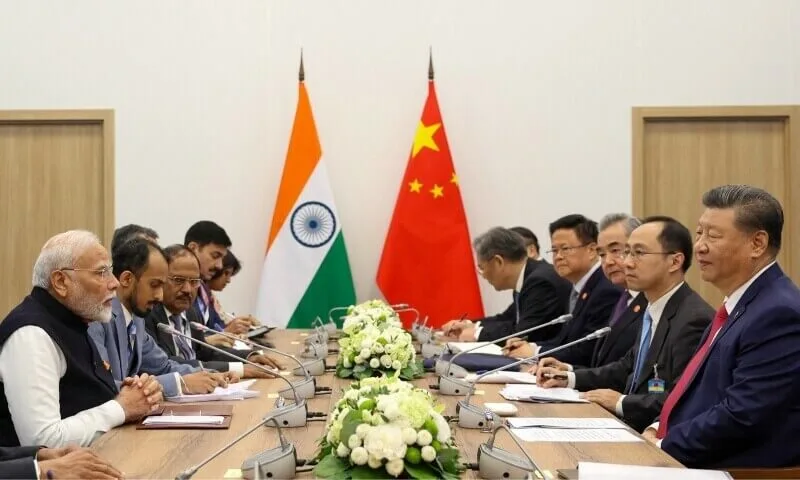New India-China Border Agreement Initiates Military Withdrawal
India and China have begun implementing a landmark border agreement to end their military standoff along the disputed Himalayan frontier. This development represents the most significant improvement in relations since the deadly border clashes of 2020.
India-China Border Agreement Enables High-Level Dialogue
The first official meeting between President Xi Jinping and Prime Minister Narendra Modi in five years has been made possible by the new border accord, which has opened the door for important diplomatic interaction. A major turning point in bilateral ties was reached when the leaders met in Russia on the fringes of a regional meeting.
Implementation of India-China Border Agreement Shows Progress
Chinese foreign ministry spokesperson Lin Jian confirmed Friday that frontline armies are making “smooth progress” in implementing the agreed measures. Indian officials, speaking anonymously, revealed that troops from both sides have begun withdrawing from the Depsang and Demchok regions – the final remaining points of direct military confrontation.
Border Agreement Follows Historic Tensions
Four years have passed since the Galwan Valley incident, in which four Chinese and twenty Indian soldiers were killed. Although both countries had already pulled their forces from five other areas of conflict, that was more than two years ago.
India-China Border Agreement Opens Path to Diplomatic Revival
The Xi-Modi meeting resulted in commitments to:
- Enhance bilateral communication
- Strengthen cooperation mechanisms
- Work towards conflict resolution
Economic Impact of India-China Border Agreement
Despite the positive developments, India maintains a cautious approach to economic relations. Post-2020 restrictions remain in place, including:
- Suspension of direct flights
- Ban on hundreds of Chinese mobile applications
- Enhanced scrutiny of Chinese investments
While some easing might occur in areas such as aviation connectivity and visa processing, New Delhi remains cautious about fully reversing restrictive measures.
Long-term Implications of India-China Border Agreement
The relationship between these Asian giants has been complex since their 1962 war, which originated from border disputes. This latest agreement represents a potential turning point, though both sides proceed with measured optimism.
A new chapter in India-China relations may begin if this border agreement is successful, which might result in stronger political and economic connections between the two most populous countries in the world. Nonetheless, the unmarked border continues to be a major obstacle in their bilateral relationship, necessitating careful management and ongoing diplomatic attention.
The implementation of this India-China border agreement represents not just a military de-escalation, but potentially the foundation for broader regional stability and cooperation in the years ahead.

